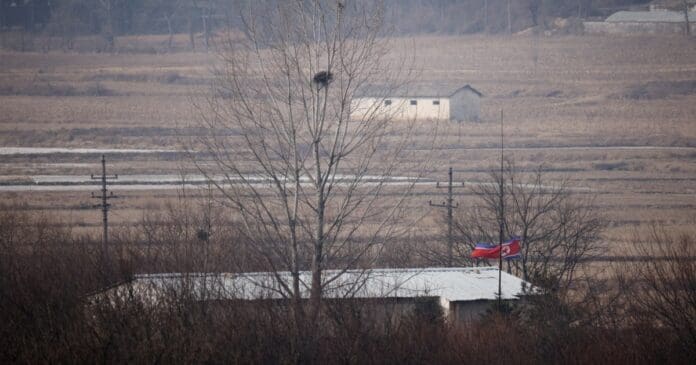Stricter border controls implemented in response to COVID-19 continue to hinder economic activity and informal trade networks in North Korea more than 18 months after Kim Jong Un proclaimed victory over the virus, according to Human Rights Watch (HRW).
In early 2020, North Korea swiftly sealed itself off from the outside world and its crucial economic connection with China in response to the pandemic. The country suspended freight shipments from China for two years and significantly bolstered its border defenses to prevent any movement between the two nations, even issuing a shoot-to-kill order to prevent potential spread of COVID-19.
Satellite images of the China-North Korea border reveal that fencing has expanded from 230 to 321 kilometers since the start of the pandemic in 2020, along with the addition of more watchtowers, guard posts, and multiple layers of fencing.
The heightened border security has drastically reduced the number of North Korean defectors, plummeting from 1,047 in 2019 to just 196 in 2022, as per HRW’s report. The strict measures have also effectively halted informal trade and cross-border movement, leaving many North Koreans afraid to approach border areas due to the fear of being shot.
Additionally, North Korean authorities have cracked down on bribery that had previously allowed individuals to circumvent government restrictions and enjoy some degree of freedom and access to goods at markets. This has led to increased repression and isolation within the country.
In response to the pandemic, officials have intensified crackdowns on informal markets and imposed harsh penalties for engaging in economic activities without official permits. The report also mentions instances of censorship targeting foreign culture, including South Korean media, resulting in severe consequences for individuals found consuming or distributing such content.
As North Korea struggles to recover from the impact of COVID-19, the country’s black market has also been significantly disrupted, affecting smuggling networks that once supplied goods to informal markets. The ongoing border controls and restrictions have further isolated North Korea from the global economy, hindering its ability to engage in international trade and commerce.
